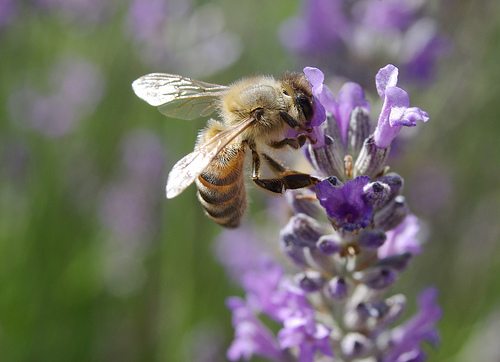

Environment
Scientists to ‘green’ four UK cities to see impact on bees
Researchers have planted flower meadows in four UK cities in an effort to understand the effects of urbanisation on insect pollinators such as bees and butterflies.
The surveys will take place in Bristol, Reading, Leeds and Edinburgh as part of the Urban Pollinators Project, a four-year initiative that concludes in 2014.
The project aims to understand how pollinators adapt to urban areas and asks how we can improve their diversity and abundance in urban areas.
Dr Katherine Baldock of Bristol University told the BBC, “We can use that information to inform land managers and garden owners about what they could potentially plant.
“The idea is that if you can put a large amount of food resources, such as pollen and nectar, does that actually improve urban areas and, longer term, is that something that could be adopted more widely?”
In June in the UK, the Department for Environment, Food and Rural Affairs (Defra) launched an “urgent review” and a national strategy to save declining populations of honeybees and other pollinators. Campaigners are calling for action to be taken before next spring.
Baldock added, “In isolation, these meadows will not be the whole answer if they are found to be beneficial. But they can at least be part of the solution.”
Meanwhile, scientists have warned that the increasing popularity of urban beekeeping may actually do the insects more harm than good.
Data from the National Bee Unit shows that between 2008 and 2013, the number of beekeepers in Greater London tripled from 464 to 1,237, with the number of hives doubling from 1,677 to more than 3,500.
In an article published in The Biologist, two experts say that adding new populations of the bees in areas with few food sources adds more pressure to the troubled species.
Instead, they ask concerned nature lovers to plant more flowers rather than adding new hives.
Further reading:
Study claims UK bees are at risk from European imports
EU member states vote to ban fourth pesticide linked to bee decline
Shared Planet: does nature have an economic value?
Government unveils strategy to end UK bee decline
‘Largest mass poisoning of bumblebees’ attributed to pesticides


 Environment12 months ago
Environment12 months agoAre Polymer Banknotes: an Eco-Friendly Trend or a Groundswell?

 Features11 months ago
Features11 months agoEco-Friendly Cryptocurrencies: Sustainable Investment Choices

 Features12 months ago
Features12 months agoEco-Friendly Crypto Traders Must Find the Right Exchange

 Energy11 months ago
Energy11 months agoThe Growing Role of Solar Panels in Ireland’s Energy Future





























